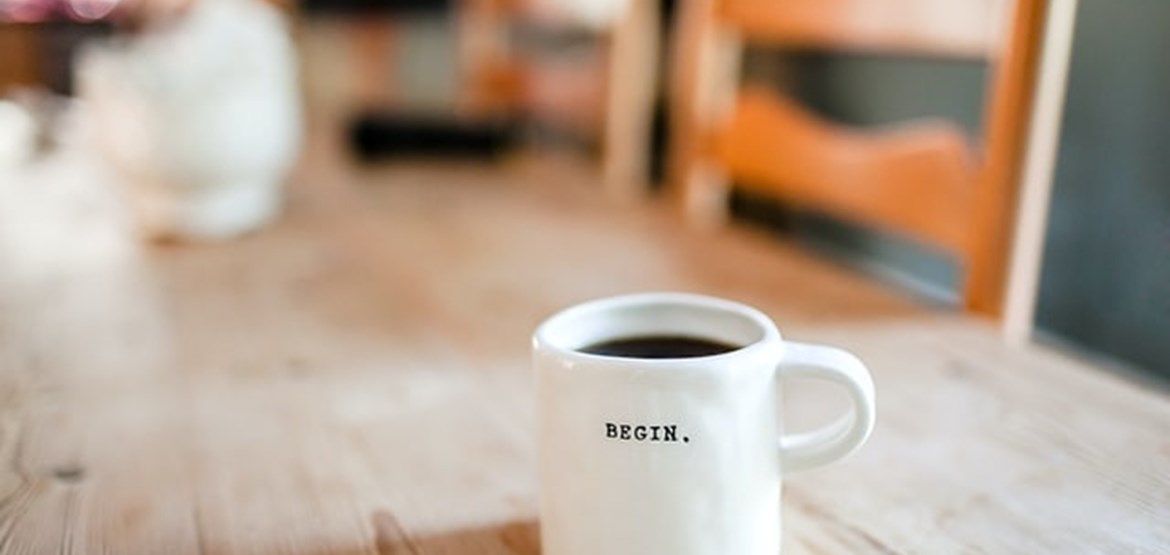How to make and break habits
Understanding habits is crucial if we want to change them.

Inspired by James Clear’s approach to habit making and breaking, we’ve been thinking about how understanding habits can help you stick to your drink-free goals.
Making a good habit or breaking a bad one?
When it comes to changing our habits, we can either form good new ones or break bad old ones, depending on what we’re trying to achieve. For example, stopping smoking would be breaking a bad habit, but eating more fruit and veg would be creating a good habit. Knowing whether you want to form a good habit or break a bad one can make it easier to achieve your goals.
How habits are formed
There are four steps which lead to a habit being formed. These are:
- Cue
- Craving
- Response
- Reward
For example, you might be finding that you’re reaching for a drink more evenings that you used to since you’ve been working from home.
- The cue is you’ve finished work
- The craving is looking for something to signal a break between the workday and the evening
- Your response is the action you take. In this case, you might open a beer because it’s something that you associate with relaxing
- The reward is you’ve satisfied your urge to do something that helps break up the day
It may seem an obvious point, but it’s worth stressing. Just because a behaviour satisfies a craving, doesn’t mean that it’s good for you. Take smoking for example. If you smoke when you’re stressed, the act of smoking satisfies the craving to relieve stress but has serious consequences for your health.
Breaking the bad habit
To break a bad habit, think about ways you can make that behaviour hard for yourself. When it comes to breaking the habit of drinking, an easy way to achieve it would be to not keep alcohol in the house. Or you could focus on making the behaviour unsatisfying. So you could spend five minutes at the end of each working day reminding yourself how even a small amount of alcohol can lead to an unsatisfying night’s sleep. Or watch our video to remind yourself of the effect alcohol can have on your mental health.
Forming good habits
Sometimes it’s easier to find a good habit to replace a bad one. A habit that satisfies the same cue, and gives you the same reward, but in a healthier way.
For example, drinking as a way to break up the day actually presents a perfect opportunity to form a good habit as a replacement. Perhaps you could start exercising instead? Or spend some time listening to music? Or begin cooking a nice meal as soon as you finish work?
Whatever the activity is, the key to forming a good habit is to make it easy, obvious, and attractive.
This could mean changing into your running gear at 4pm before you even finish work. Or choosing the album you want to listen at lunchtime and setting up your headphones or record player ready to listen as soon as you finish work. Or maybe you set out the pots and pans you need to cook a new recipe so you’re ready to start cooking as soon as you’ve finished work.
Adapt the behaviour
Another way to change a habit is to adapt the unhealthy element and switch it for a healthier alternative. So instead of reaching for a beer, you could have an alcohol-free beer or mocktail instead.
The key to changing the unhealthy element is to make sure the healthy alternatives are easily accessible, obvious (make sure they’re at the front of your fridge and the alcohol is stored somewhere else) and attractive (find an alcohol-free alternative that you genuinely enjoy!).
Drink-free days
Having at least three drink-free days each week can have a positive impact on your short-term and long-term health. The easiest way to stick to your drink-free day goals is to think about your habits and identify the ones that often trip you up.
When you’ve worked out what habits you want to change, try the strategies in this blog to either break the bad habit or start a good one. And if you’re looking for inspiration or activities you can try on your drink-free days, we’ve got a handy guide for you.
Keeping track of your drink-free days is a great way to stay motivated while you change your habits, so download our free app and log your drink-free days each week. In just a few weeks you’ll notice lots of positive benefits of reducing the amount you drink, such as better sleep, improved mood and more energy.
If you’ve decided it’s time to make or break a habit, let us know on Twitter and Facebook how you’re getting on.